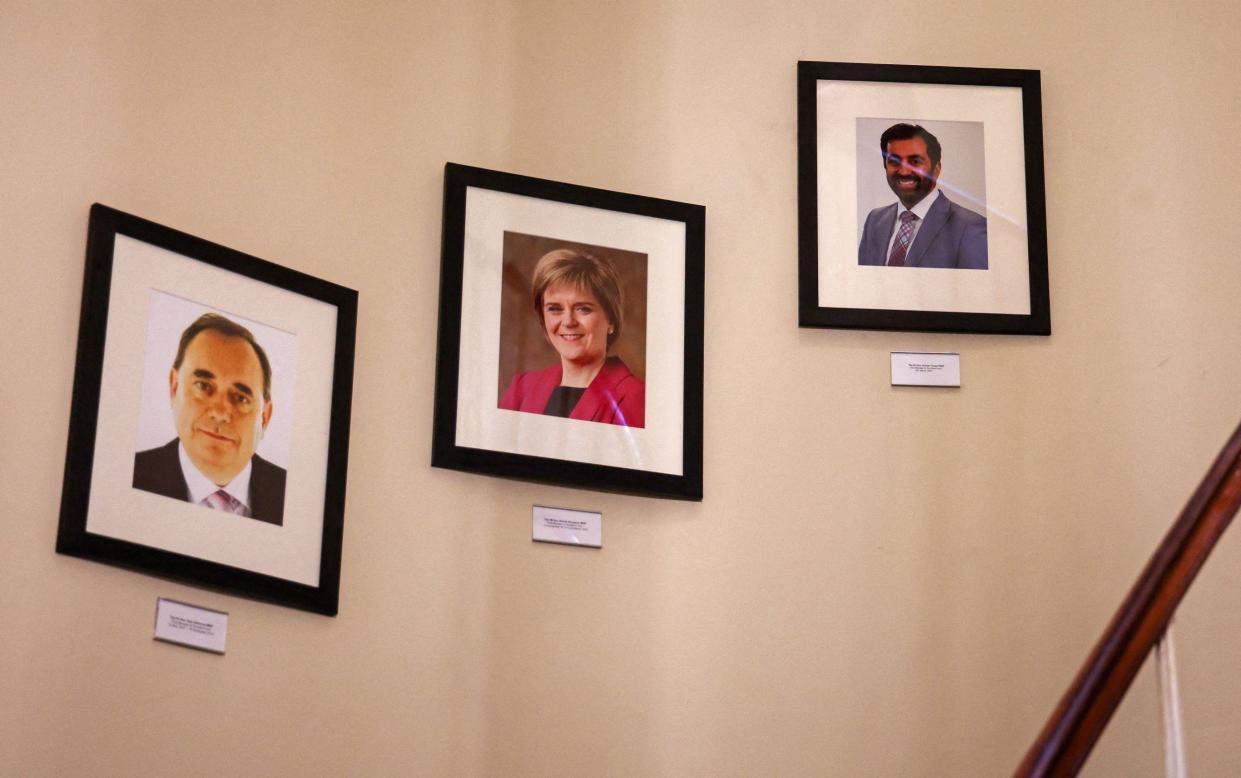The SNP has been defeated by its own visceral hatred

There are many factors and many people who can take at least some of the credit for the SNP’s defenestration yesterday.
Keir Starmer and his Scottish party’s leader, Anas Sarwar, will obviously be patting themselves on the back after Labour swept the board across Scotland, dramatically restoring its former position as the dominant party. And say it softly, but there are four Conservatives who subtly and decisively changed the debate in Scotland and forced the SNP onto the back foot back since 2016.
Theresa May, Boris Johnson, Liz Truss and Rishi Sunak all said “no” to nationalist demands for a second independence referendum, enraging the SNP and confounding its expectation that, following the premierships of Gordon Brown and David Cameron, they could continue to drive the political agenda in Scotland.
But the first prize for this sea change in Scottish politics can be laid at the door, not of the nationalists’ opponents, and certainly not at the door of Scottish voters, but of the SNP themselves.
Watching, over the last nine years, the swaggering arrogance of SNP MPs as they pontificated and gloated about their new dominance of Scotland’s political life, was a grim, enraging experience. A party that had spent three years deliberately dividing the nation over a niche constitutional obsession had found itself representing 56 of Scotland’s 59 Westminster seats, on top of its dominance of the devolved chamber at Holyrood.
For a party that, five years previously, had won a total of six Westminster constituencies, it was a startling transformation. The SNP had always preened itself as “the voice of Scotland” even when, in the 1980s, it was coming a poor third place to Labour and Margaret Thatcher’s Conservatives. That’s what nationalism does: it assumes a prominence in public life that is frequently unjustified by its popular support.
But 2011 and then 2015 changed all that, and in a remarkably short period of time, the SNP were behaving like Kings of the World with barely a thought as to how they would deliver on their promise of independence, or how they would appear to that majority of Scots who still reviled them and whose support they would need if they were ever to succeed in selling their prospectus on independence.
Public office seemed to be theirs by right rather than merit. Difficulties in delivering at a Holyrood level were compounded by internal political machinations, difficult relations with their parliamentary partners, the Scottish Greens, and a bewildering succession of first ministers following Nicola Sturgeon’s unexpected resignation last year.
Genuine hatred plays a big part in the SNP’s political outlook. There is the performative kind – the evil Tories who hate Scotland and want to send your children up chimneys – and then there is the real, visceral hatred, reserved for Labour, for the single reason that it has dominated Scottish politics for so long and has therefore prevented independence from achieving its rightful prominence for generations.
That hatred, coupled with a genuine delusion that it and it alone can speak for Scotland, has shaped the party and its leadership across all recent iterations. And when the divisions over the independence referendum resulted in SNP dominance of Westminster seats in Scotland, and when that victory was repeated twice more, the party started to believe its own propaganda, that the Scottish people had changed their minds for the last time, that nationalist dominance would continue until the inevitable day when Scotland became independent.
Last night was a rude awakening, and a long-deserved one.
Hubris never fails to have its consequences. One is a tendency to blind oneself to the realities of life, and in the SNP’s case, their singular obsession with independence and hatred of Labour blinded it to the changing priorities of Scottish voters, who had started to realise that independence, while still attractive to many, was no longer at the top of their political wish list.
The SNP reaped what it sowed. Its arrogance, its entitlement and its short-sightedness have been exposed and the very people who raised them up have thrown them down again. And with it, the very project they hold so dear to their hearts.

 Yahoo News
Yahoo News 
